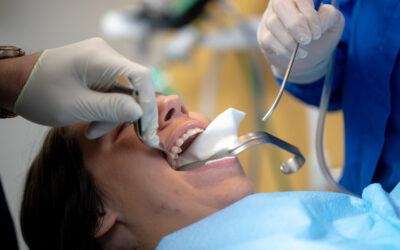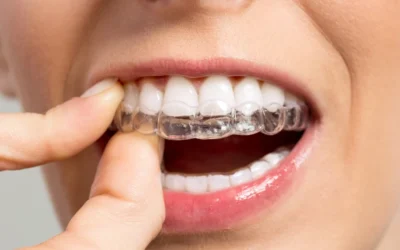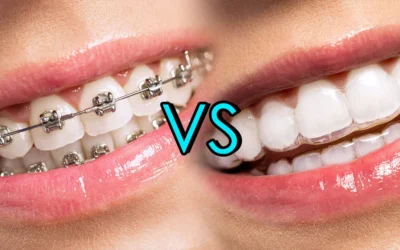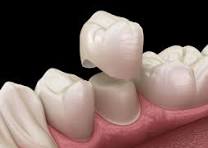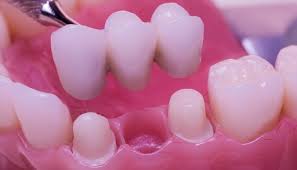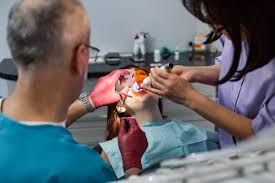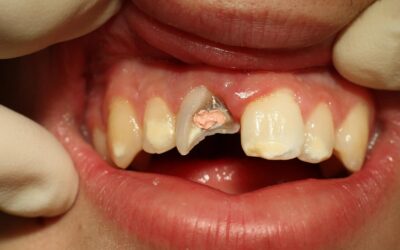Dental Blog
What Are Crowns for Teeth? A Complete Guide
Cavities are a common dental issue, and fillings are one of the most effective ways to treat them. However, many patients worry about the dental filling cost. Understanding the typical expenses, what influences them, and how to save money can help you plan for this essential dental procedure.
Emergency Dental Extraction Near Me | Same-Day
Cavities are a common dental issue, and fillings are one of the most effective ways to treat them. However, many patients worry about the dental filling cost. Understanding the typical expenses, what influences them, and how to save money can help you plan for this essential dental procedure.
Emergency Dentist for Kids Near Me | 24/7 Pediatric Dental Care
Cavities are a common dental issue, and fillings are one of the most effective ways to treat them. However, many patients worry about the dental filling cost. Understanding the typical expenses, what influences them, and how to save money can help you plan for this essential dental procedure.
Dental Care Access: Why It’s Difficult and How to Improve It
Cavities are a common dental issue, and fillings are one of the most effective ways to treat them. However, many patients worry about the dental filling cost. Understanding the typical expenses, what influences them, and how to save money can help you plan for this essential dental procedure.
Family Dental Care: One Clinic for Every Smile in Your Family
Cavities are a common dental issue, and fillings are one of the most effective ways to treat them. However, many patients worry about the dental filling cost. Understanding the typical expenses, what influences them, and how to save money can help you plan for this essential dental procedure.
Invisalign Braces Pricing for a Confident, Straight Smile
Cavities are a common dental issue, and fillings are one of the most effective ways to treat them. However, many patients worry about the dental filling cost. Understanding the typical expenses, what influences them, and how to save money can help you plan for this essential dental procedure.
Invisalign vs. Braces: Compare Cost, Time, & Effectiveness
Cavities are a common dental issue, and fillings are one of the most effective ways to treat them. However, many patients worry about the dental filling cost. Understanding the typical expenses, what influences them, and how to save money can help you plan for this essential dental procedure.
Crown for Teeth: The Definitive Guide to Dental Restoration
Cavities are a common dental issue, and fillings are one of the most effective ways to treat them. However, many patients worry about the dental filling cost. Understanding the typical expenses, what influences them, and how to save money can help you plan for this essential dental procedure.
Dental Crown Procedure: A Step-by-Step Guide from Start to Finish
Cavities are a common dental issue, and fillings are one of the most effective ways to treat them. However, many patients worry about the dental filling cost. Understanding the typical expenses, what influences them, and how to save money can help you plan for this essential dental procedure.
Need to Access Dental Care? We Make It Simple & Affordable
Cavities are a common dental issue, and fillings are one of the most effective ways to treat them. However, many patients worry about the dental filling cost. Understanding the typical expenses, what influences them, and how to save money can help you plan for this essential dental procedure.
24hr Dentist | Immediate Pain Relief & Emergency Care
Cavities are a common dental issue, and fillings are one of the most effective ways to treat them. However, many patients worry about the dental filling cost. Understanding the typical expenses, what influences them, and how to save money can help you plan for this essential dental procedure.
Broken Tooth Pain: What to Do Now & How to Fix It
Cavities are a common dental issue, and fillings are one of the most effective ways to treat them. However, many patients worry about the dental filling cost. Understanding the typical expenses, what influences them, and how to save money can help you plan for this essential dental procedure.
</h2>Broken Tooth Extraction</h2>
<p>When you're facing a dental emergency like a broken tooth, quick and effective action is essential. If you have braces or dental implants, sudden tooth extraction can be scary. This article will explain what to do, find a weekend dentist, and keep your mouth healthy.</p>
<h3>Understanding Broken Tooth Extraction</h3>
<p>Removing a damaged or broken tooth to stop pain and problems. The procedure is quick and usually performed by an experienced dentist.</p>
<p>If you experience a broken tooth, it's crucial to seek emergency dental care promptly. If you don't fix a broken tooth, it can cause infections, and strong pain, and may need complicated dental work like implants later.</p>
<p>But what exactly happens during a broken tooth extraction? Let's break it down in simple terms:</p>
<h4>1: Evaluation</h4>
<p>At the dentist appointment, the dentist will check the tooth to determine if it affects the roots or nearby teeth. This may involve taking X-rays to get a better view of the tooth and its positioning in the mouth.<\p>
<p>This may involve removing the tooth. It may also involve doing a root canal or other needed treatments.
The goal is to fix the problem and avoid more issues. The dentist needs to carefully check the situation to decide the best way to fix the patient's oral health.<\p>
<h4>2: Local Anesthesia</h4>
<p>Before the actual extraction, you'll receive local anesthesia to numb the area. This ensures that you won't feel any pain during the procedure. For kids seeking emergency dental extraction, this step is especially important to keep them comfortable.</p>
<h4>3: Tooth Extraction</h4>
<p>With the area numbed, the dentist will proceed to extract the broken tooth. They may need to use special instruments, depending on the tooth's condition.<p>
<h4>4: Post-Extraction Care</h4>
<p>After successfully removing the broken tooth, the dentist will give you instructions for post-extraction care. This may include guidelines on eating, drinking, and keeping the extraction site clean to prevent infection.</p>
<p>Now that you understand the basics of a broken tooth extraction, let's explore some essential aspects you should know:</p>
<h3 id="title-7">Importance of Prompt Action</h3>
<p>Seeking immediate emergency dental extraction can prevent further complications and alleviate pain. If you have braces, clear braces, or dental implants, dealing with the issue quickly helps your orthodontic treatment stay on course.</p>
<p>If you're wondering, 'Can I find nearby dental implants for emergencies' the answer is probably yes. Many dental offices offer emergency dental care, so finding a suitable provider shouldn't be a challenge.</p>
<h3 id="title-8">The Role of Braces and Dental Implants</h3>
<p>If you have braces or dental implants, a broken tooth can be a concern for your treatment. Let's delve into each scenario:</p>
<h4 id="title-9">Braces (Ceramic and Transparent)</h4>
<p>For individuals with ceramic or transparent braces, a broken tooth can be distressing. The brackets and wires are delicate, and a damaged tooth can interfere with the treatment's progress.</p>
<p>If you experience a broken tooth while wearing ceramic or transparent braces, follow these steps:</p>
<ul>
<li>Instantly contact your orthodontist or a weekend dentist who specializes in emergency dental care.</li>
<li>Do not attempt to fix the broken tooth or braces yourself, as this can lead to further damage.</li>
<li>Until you can see a dentist, be cautious with your diet, avoiding hard or sticky foods that may worsen the situation.</li>
</ul>
<h4 id="title-10">Dental Implants</h4>
<p>Here's what to do if you have dental implants and experience a broken tooth:</p>
<ul>
<li>Contact an emergency dental office or a dentist experienced in handling dental implants immediately.</li>
<li>Avoid putting pressure on the broken tooth or the implant area to prevent further damage.</li>
<li>Follow any post-extraction care instructions diligently to ensure the implant's success.</li>
</ul>
<p>Your dentist will assess the damage and determine the best course of action. In some cases, they may need to remove the broken tooth and plan for a replacement, such as mini dental implants.</p>
<h3 id="title-11">Cost Considerations</h3>
<p>Untreated dental issues can escalate, requiring more extensive and costly procedures.</p>
<p>If you're concerned about money, talk to your dentist about payment and insurance options. Many dental offices offer flexible payment plans to make emergency dental care more accessible.</p>
<h3 id="title-12">Finding a Weekend Dentist</h3>
<p>Dental emergencies can strike at any time, including weekends and holidays. So, how can you find a weekend dentist when you need one?</p>
<p>Here are some tips:</p>
<ul>
<li>Check online directories or websites of dental offices near you. Look for those that mention offering weekend appointments or emergency services.</li>
<li>Consider searching for "kids emergency dentist" if you have children who may require specialized care during emergencies.</li>
</ul>
<p>It's smart to have the number of an emergency dentist in your phone for urgent situations. This preparation can save you valuable time and reduce stress during a dental emergency.</p>
<h3 id="title-13">Conclusion</h3>
<p>But with the right knowledge and prompt action, you can navigate it effectively. Whether you have braces, clear braces, dental implants, or need a kids' dentist in an emergency, getting help fast is vital.</p>
<p>Remember to reach out to a weekend dentist or emergency dental office as soon as you face a broken tooth. Timely treatment can prevent complications, maintain your orthodontic progress, and safeguard your oral health.</p>
<p>Discuss payment options with your dentist and prioritize your well-being. Your smile is worth the investment.</p>

